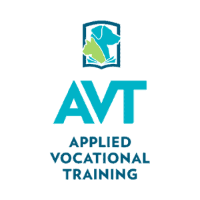
Popular courses in Adelaide
Certificate III in Health Services Assistance
- There are no mandated entry requirements.


Diploma of Horticulture Management
- There are no mandated entry requirements.
 Ironwood Institute
Ironwood Institute
Certificate III in Horticulture
- There are no mandated entry requirements.
 Ironwood Institute
Ironwood Institute
Graduate Diploma of Agribusiness
- Completed Diploma (AQF Level 5) or above relevant to an agrifood industry OR
- Evidence of relevant skills, knowledge and employment experience
 Ironwood Institute
Ironwood Institute
Certificate IV in Agriculture
- There are no mandated entry requirements.



Diploma of Agribusiness Management
- There are no mandated entry requirements.
 Australian College of Agriculture & Horticulture
Australian College of Agriculture & Horticulture
Diploma of Agriculture
- There are no mandated entry requirements.



Certificate IV in Veterinary Nursing
- Completed Certificate III (AQF Level 3) or above in an animal science discipline OR
- Completed Certificate II in Animal Studies or equivalent qualifications OR
- Evidence of relevant skills, knowledge and employment experience


Certificate III in Rural Operations
- There are no mandated entry requirements.
 Arbortrim Training & Consultancy
Arbortrim Training & Consultancy
Diploma of Animal Technology
- There are no mandated entry requirements.
 TAFE SA
TAFE SA
Certificate III in Animal Care Services
- There are no mandated entry requirements.





Certificate III in Wildlife and Exhibited Animal Care
- There are no mandated entry requirements.




Certificate II in Animal Care
- There are no mandated entry requirements.








Certificate III in Animal Care Services (Pet Grooming)
- There are no mandated entry requirements.


Certificate III in Animal Care Services (Customer Service)
- There are no mandated entry requirements.
 Heiniger Academy
Heiniger Academy
Bachelor of Science (Animal Biology)
- There are no mandated entry requirements.
 Flinders University
Flinders University
Bachelor of Science (Animal Science)
- There are no mandated entry requirements.
 The University of Adelaide
The University of Adelaide
Bachelor of Science (Biology)
- There are no mandated entry requirements.
 Charles Sturt University
Charles Sturt University
Bachelor of Science (Ecology and Evolutionary Biology)
- There are no mandated entry requirements.
 Flinders University
Flinders University
Bachelor of Science (Ecosystem Science)
- There are no mandated entry requirements.
 University of South Australia
University of South Australia
Frequently Asked Questions
Yes, there are course providers who offer 20 qualification(s) in Adelaide. Find a course provider near you. Once you make an enquiry, a course advisor will get in touch to discuss your study options and course fees.
Written by Courses.com.au Team
There are several campuses within the Adelaide area that provide animal care training. The nearest campus is located right in the center of Adelaide. You can also study a animal care course through online, distance or traineeship learning. Find a course provider that best suits your needs.
Written by Courses.com.au Team
Potential job roles within animal care includes pet groomer, animal attendant or kennel hand (to name a few). Browse related occupations to find a career that suits your needs.
Written by Courses.com.au Team
Further reading


Certificate III in Pathology Collection: Everything You Need to Know
10th February 2025)
